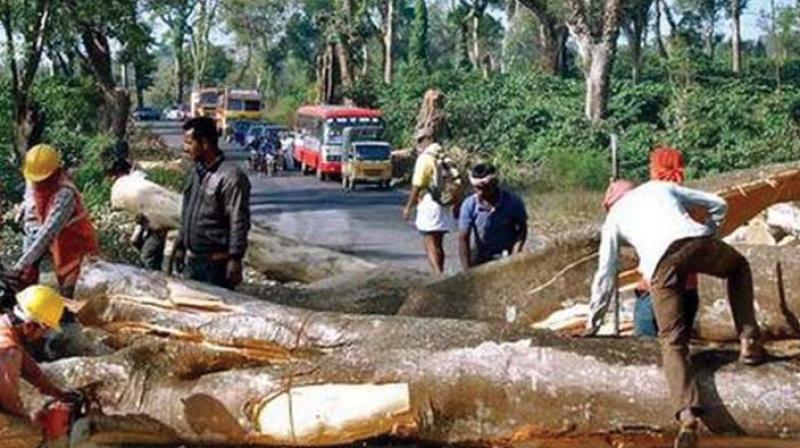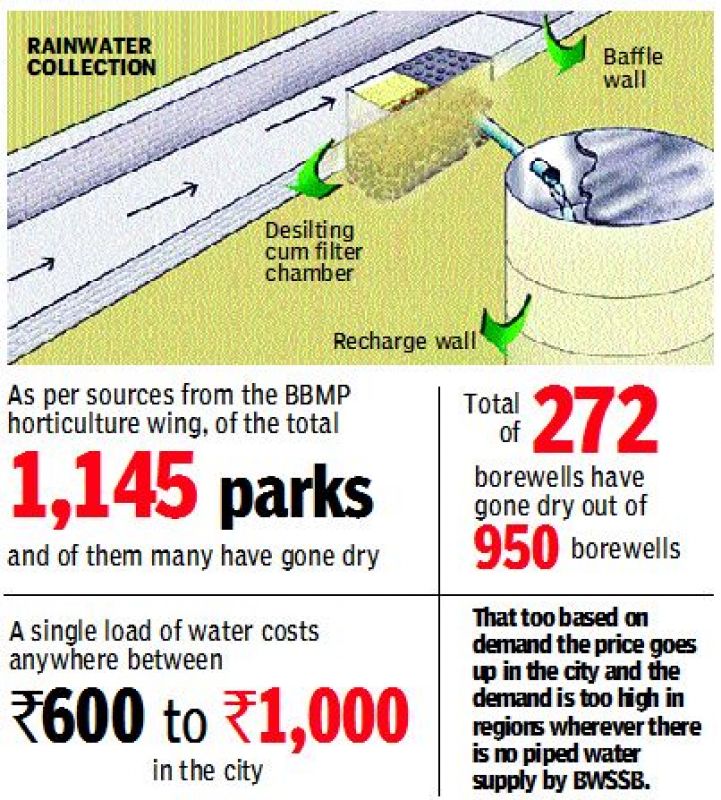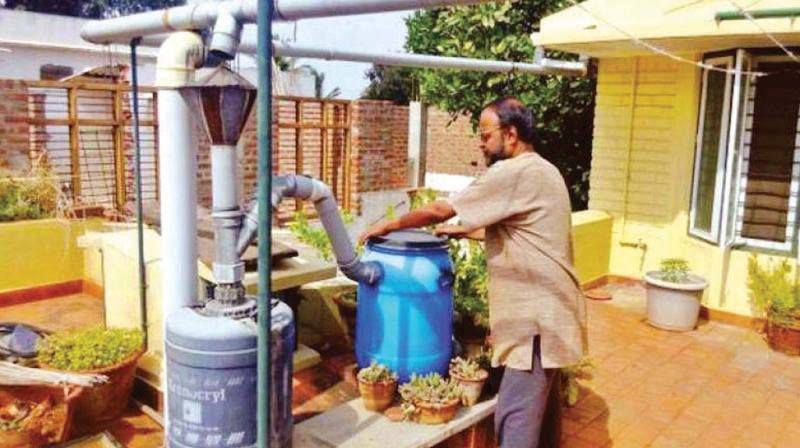Why don’t parks usetreated water, bbmp?

Rainwater harvesting plants for individual homes, mandatory STPs and compost plants in apartment complexes - BBMP excels at telling people what to do. Rarely does it follow its own advice, though.
The city’s parks are drying up, a normal occurence this time of year but BBMP has done little to find a permanent solution. Instead of following its own rules and setting up rainwater harvesting or sewage treatment plants, BBMP buys water from private tankers to water its parks! And it’s a drain on taxpayer money. Has BBMP actually managed to find a solution that is worse than the problem, asks Aknisree Karthik
Fortunately for Bengaluru, it has not entirely lost its Garden City reputation thanks to the many parks that still dot it. Besides the famous Cubbon Park and Lalbagh that provide huge lung spaces in a city that is fast turning into a concrete jungle, most localities have their own parks, where people can enjoy their walks and breathe in some fresh air.

But on the other hand, while the city is home to 1,145 parks, (going by the BBMP’s horticulture wing), many have gone dry in the absence of adequate water for their upkeep and the situation only worsens in summer.
Although the parks regularly run out of water at this time of the year, the BBMP is doing little to find a permanent solution to the problem and instead relies on water from private tankers for their needs. Ask its officers and they say the BBMP has no choice as it cannot rely on its own borewells anymore to supply the water needed for the parks. "We are forced to rely on private water tankers for parks where the borewells have gone dry," said one officer.
While this in itself is a waste of public money, to make matters worse, the civic body does not seem to have proper records on how many tankers it uses or how much it pays them. Going by the market rate, a single tanker load of water costs anywhere between Rs 600 and Rs 1,000 in the city, but based on demand it could be even higher. On the other hand, treated water is available for almost next to nothing from the BWSSB and private sewage treatment plants, a fact that seems to have escaped the BBMP. In fact the civic agency has not considered using treated water for its parks even after the BWSSB suggested it.. Said a BWSSB officer, “ We had sent a proposal to the BBMP to use treated water for its parks. But till today, we haven't received any response from it to our suggestion .”
Although the proposal seems to have been put into storage like many others, an official of the BBMP’s horticulture department claims it is still in the pipeline. “The proposal will be looked into later as all officials are presently occupied with the elections,” he said when contacted.
Why is RWH mandatory only for residents?

The government may be going to town about rain water harvesting and how Bengalureans are reluctant to accept it, but its agencies are not adopting it either. Although proposed in the budget for BBMP parks, the plan to install rain water harvesting structures in their grounds has made little progress and like many projects this too has remained on paper, with no one caring to take it forward.
Not surprisingly, people are upset at the government’s hypocrisy in the matter. Said Mr Hariharan, a regular walker at the BBMP park in Hanumanthnagar, “The government preaches big time on rain water harvesting and has acres of land in the city’s parks where it can tap every single drop of water received. But it has not. On the other hand, we had to take a loan to go in for rain water harvesting in our home. They forced us to do this and we obliged for the sake of our society. We did it , but what has the government done? Why does it prefer to spend hard earned taxpayers’ money on private tankers?”
Pointing out that the city receives enough rain to help it reduce its dependence on the river Cauvery, Ms Padmavathi a resident of Banashankari says that such small steps could be a big game changer in the long run. “ Only our babus need to realise this and take steps to conserve water. If RWH is done, we will not need any borewells at all,” she reasoned. Is anyone listening?

